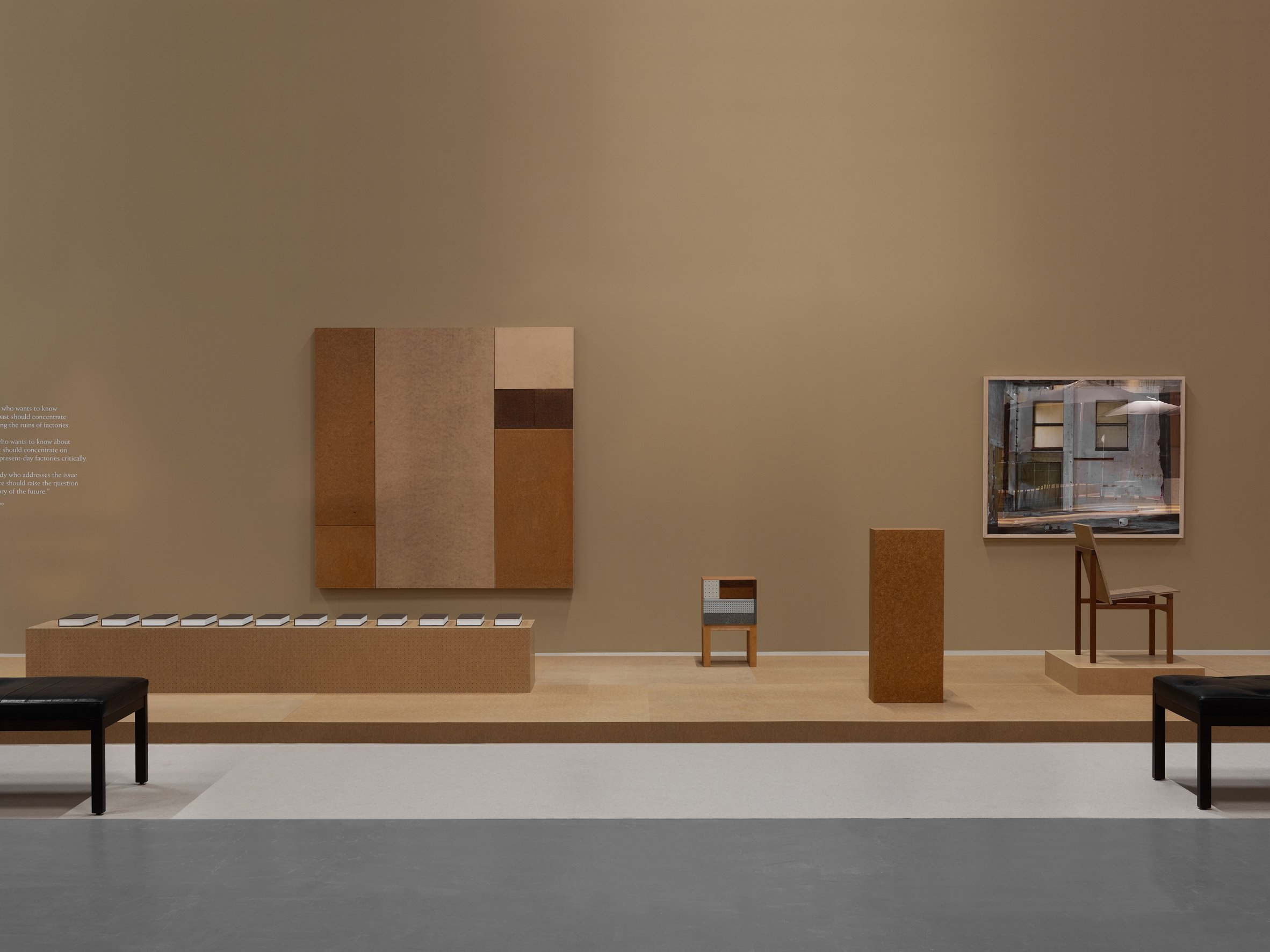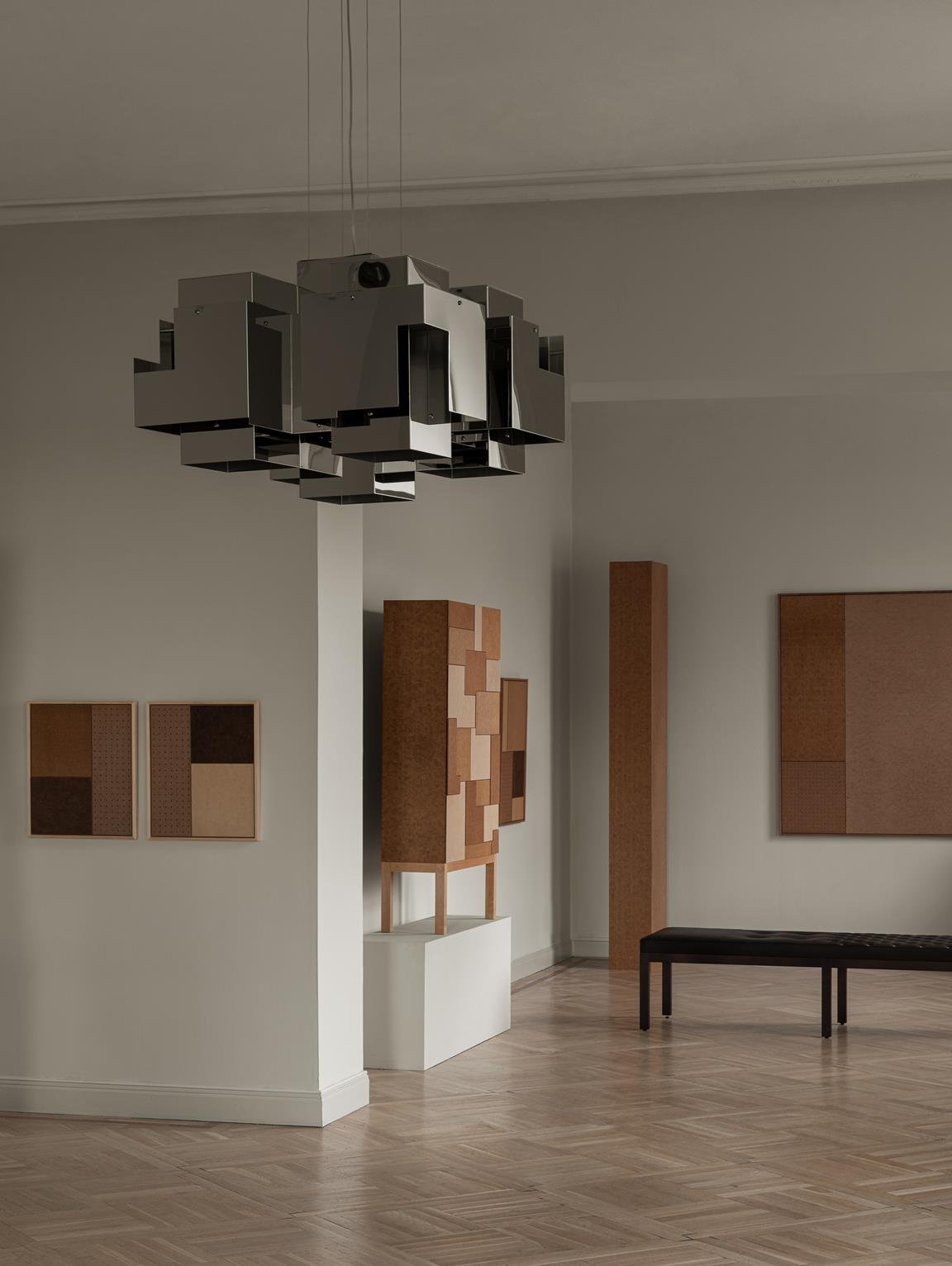In their ever evolving study of this humble material, Swedish design studio Folkform (Anna Holmquist and Chandra Ahlsell), created The Museum of Masonite - an exhibition showcasing their work made from the compressed wood fibre material. Once an essential ingredient in a wide variety of furniture pieces and industrial equipment, Masonite has fallen by the wayside in recent decades with Sweden’s last remaining factory closing its doors in 2011. Presenting their exhibition at this year’s Stockholm Furniture Fair, the duo have again managed to revitalise interest in this cost effective material invented in Mississippi a century ago.
Folkform came together as a design practice while studying at Konstfack, University of Arts, Crafts and Design in Stockholm. Ahlsell also studied at the Pratt Institute in New York and Holmquist at Goldsmiths University in London and the Royal Danish Academy of Fine Arts in Copenhagen.
Since they founded their practice in 2005, Folkform have mined the riches of Swedish craft based industries; Masonite manufacturing in Rundvik, bronze moulding in Limham and leather tanning in Tärnsjö to name just a few.
Their first forays into Masonite, a kind of engineered board made from steam cooked and pressure moulded wood chips, came in response to a design competition. The two designers proposed adding real plants and flowers to Masonite and after some experimentation the idea was successful. After showing their custom Masonite panels at the Milan Furniture Fair the material attracted global orders and became something of a minor hit with Swedish architects and designers. Batches of their boards were produced for the Fjällnäs Chapel and the head office of Diligentia in Stockholm among other projects and culminated in a commission from the Queen of Jordan that incorporated olive leaves just prior to the factory’s closure in mid 2011. Cabinets produced utilising the last Masonite panels produced by the Västerbotten factory in Rundvik, formed a collection of limited edition cabinets for Swedish design institution Svenskt Tenn and exhibited in 2012.
After the production facility had closed, Folkform morphed to finding and incorporating reclaimed or unused vintage Masonite panels for this part of their work. The next iteration of Masonite cabinets for Svenkst Tenn were shown at an exhibition called Masonite : Memoriam in 2012. These cabinets showed the development of a more abstract compositional approach where the textures and nuanced colours produced over the decades since the material was first introduced into Sweden in 1929 were placed across the cabinet’s surface.
Raised on high legs in a nod to the preferred style of Svenkst Tenn’s founding designer Josef Frank, these cabinets are a joyful interpretation of industrial materials mixing perforated, painted and natural wooden components.
Folkform’s desire to draw attention to the plight of many Swedish craft and creative industries that were once world renown (think glassblowing, leather tanning, forest products and metalworking) has lead to intensive research into old industrial processes and forgotten craft techniques.
The love and attention that Folkform bestows on the humble material Masonite is not only touching but also visually engaging, in a low key sort of way. The choice of an old material is at odds with contemporary design’s general fascination with the new and shiny and perhaps a reminder that many things from the past are worth reassessing as they can sometimes be surprisingly practical, economical, sustainable and beautiful in the hands of genuine creatives.
The exhibition The Masonite Museum will travel to the original home of Masonite manufacturing in Laurel Mississippi at the Lauren Rogers Museum of Art. It was here a century ago that William H Mason invented the process.
Folkform is represented in the collection of the National Museum in Stockholm and the National Museum in Oslo. In 2019, the design duo was awarded the Bruno Mathsson prize, the largest design prize in the Nordic countries.










